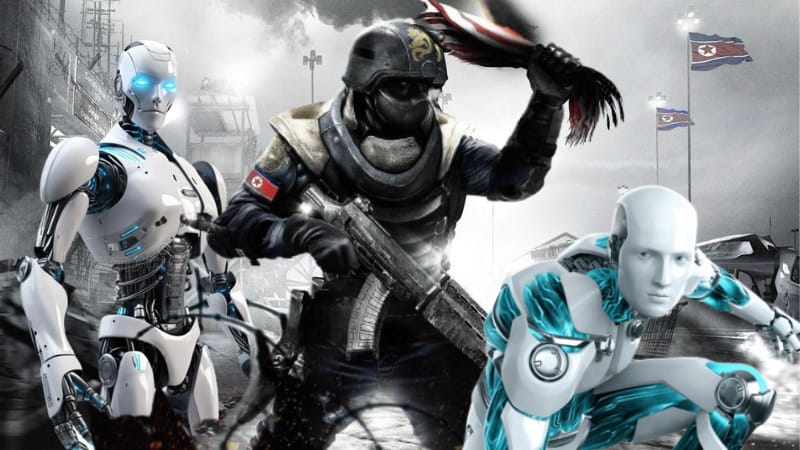Will AI CHANGE GAMING?
September 13, 2023
Introduction
Artificial intelligence (AI) has changed the game in many sectors, and the gaming industry is no exception in the rapidly developing world of technology. AI in gaming has gone far beyond simply creating challenging opponents for players. By the improvement in dynamics, immersion, personalization, and designing in games , it has completely converted the gaming industry. In this article, we will deeply look inside that how AI has changed the gaming word.
Intelligent NPCs (Non-Playable Characters)
The creation of smart non playable character is one of the best use of AI in the field of gaming. Gone are the days of predictable enemies following pre-determined paths. NPCs nowadays are capable of making dynamic decisions and changing their plans in response to player activities. AI-driven NPCs increase the difficulty and realism of the gaming experience, whether you’re exploring a sizable open-world RPG or fighting fierce enemies in a first-person shooter.
Procedural Content Generation by AI in gaming
AI is essential to procedural content generation, which uses it to generate game components like levels, maps, and even whole game worlds. With the use of this technology, developers can build expansive, immersive worlds that are both distinct and dynamic. The enormous landscapes found in games like “Minecraft” and “No Man’s Sky” are the result of AI algorithms that provide varied and fascinating topography.
Personalized Gameplay by AI in gaming
AI not only makes games more difficult; it also customises the gameplay to each player’s tastes. Machine learning algorithms examine a player’s behaviour to personalise the gaming experience, from playstyle to in-game choices. Based on their unique gaming interests and behaviours, this implies that two players might have quite different interactions inside the same game.
Realistic Graphics and Physics
Games now appear and feel more realistic than ever thanks to AI-driven graphics and physics systems. Beautiful images with realistic lighting, texturing, and character motions may be produced using machine learning-powered rendering algorithms. Additionally, AI is improving physics engines, making in-game interactions more believable, whether it’s the way objects collide, water flows, or characters move.
Predictive Analytics and Player Engagement
AI is not only enhancing gameplay but also helping game developers better understand their audience. Predictive analytics algorithms can analyze player data to anticipate player behavior, predict trends, and optimize game features. This information is invaluable in creating engaging in-game events, updates, and expansions that keep players hooked.
AI-Powered Voice Assistants
The popularity of speech-controlled games is rising as a result of the development of AI-powered voice assistants like Siri, Alexa, and later Google Assistant. The ability to communicate with their games using natural language instructions provided by these helpers gives gamers a new level of ease and immersion.
Cheat Detection and Prevention by AI in gaming
Online gaming is fraught with cheaters who undermine the integrity of competitive play. AI-driven cheat detection systems can analyze player behavior and further identify suspicious patterns, helping to maintain a fair and balanced gaming environment by detecting and penalizing cheaters.
Game Testing and Debugging
Developers use AI to expedite the game development process through automated testing and debugging. AI can identify bugs, glitches, and performance issues more efficiently than manual testing, helping ensure a smoother gaming experience upon release.
The Future of AI in Gaming
As we know the technology is growing up and becoming more and more advance, The role of AI in field of gaming moves on further and further. We can have some expectation to see:
- Improved natural language processing for more immersive and responsive in-game dialogue.
- AI-generated music and soundscapes that adapt to the player’s actions and emotions.
- Enhanced virtual reality experiences with AI-driven physics and graphics.
- Greater integration of AI-driven storytelling, providing players with more emotionally engaging narratives.
Share This :


